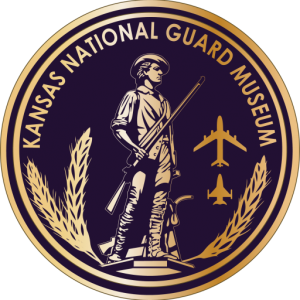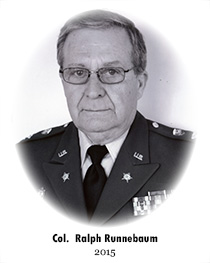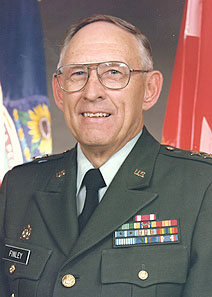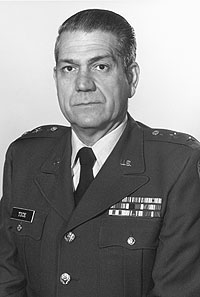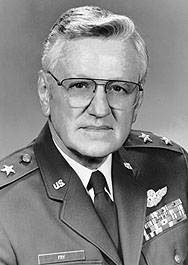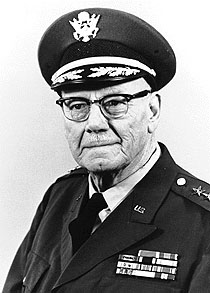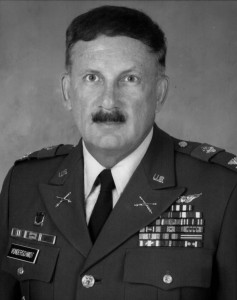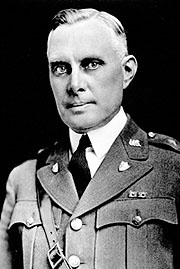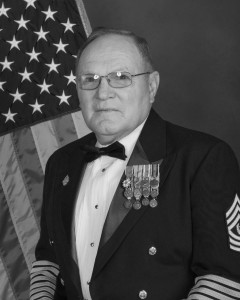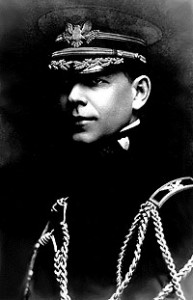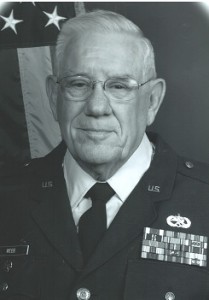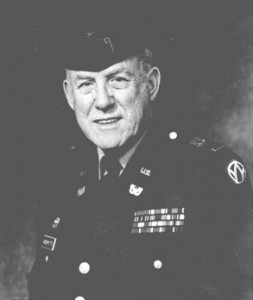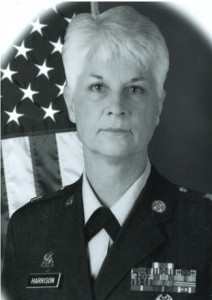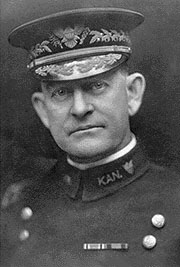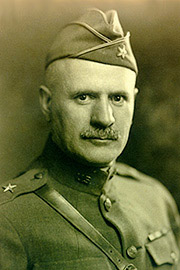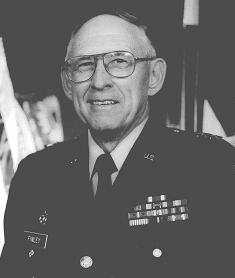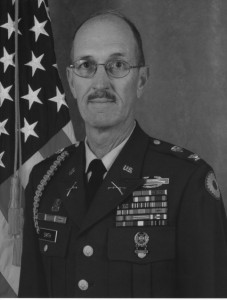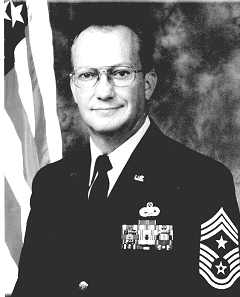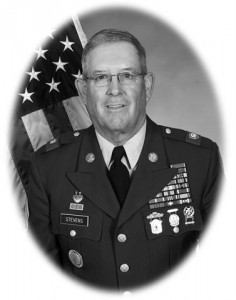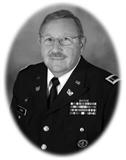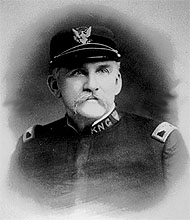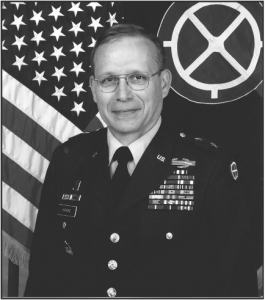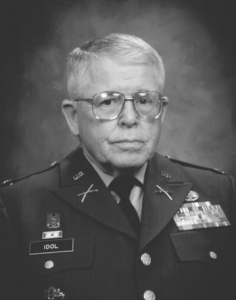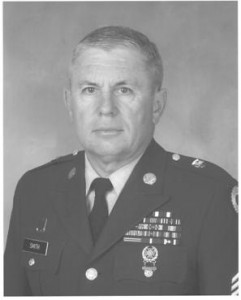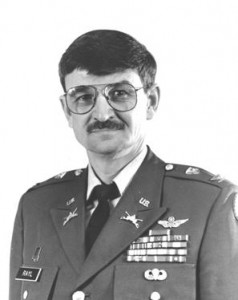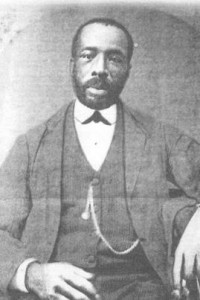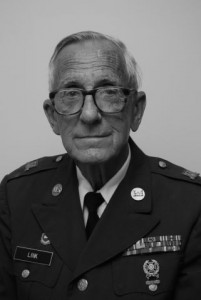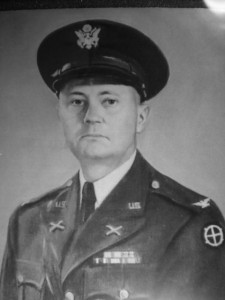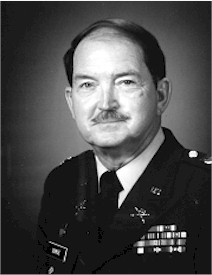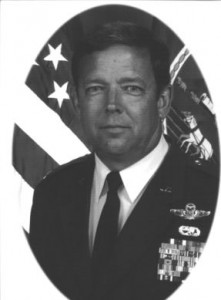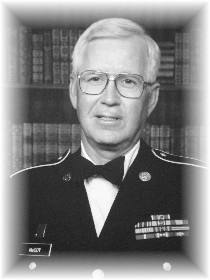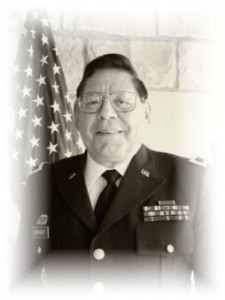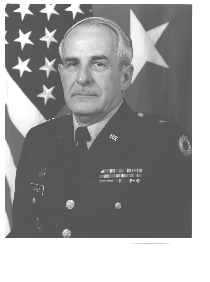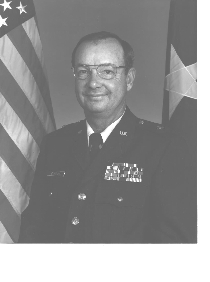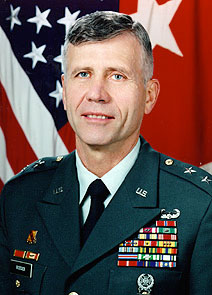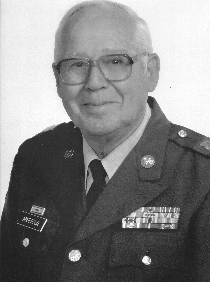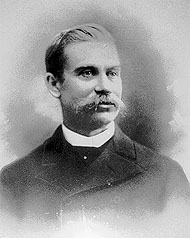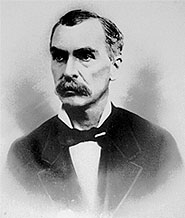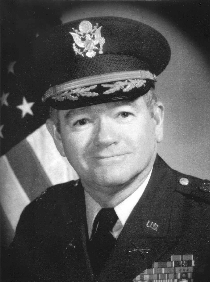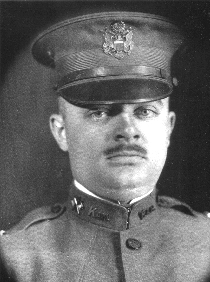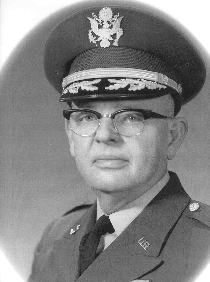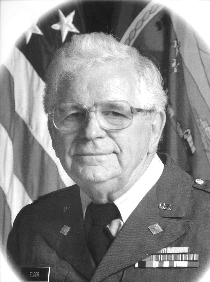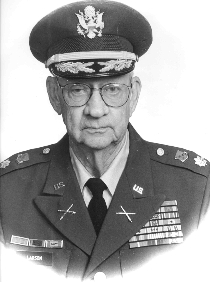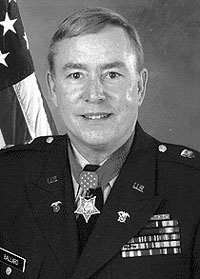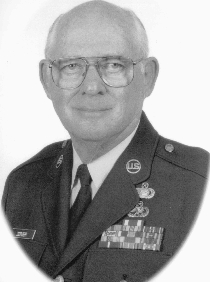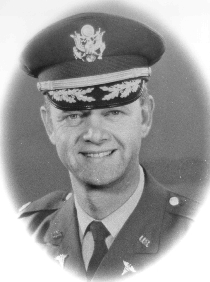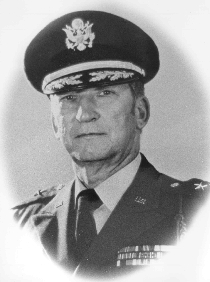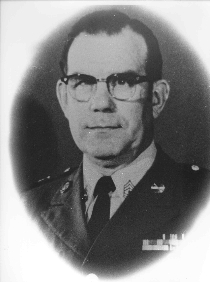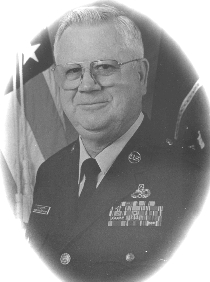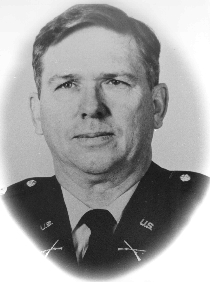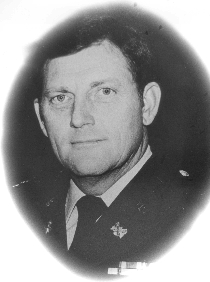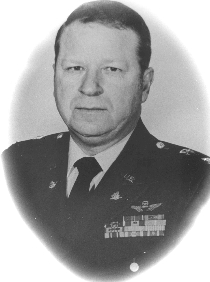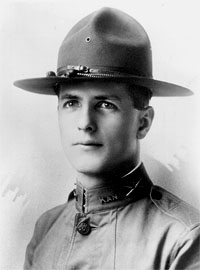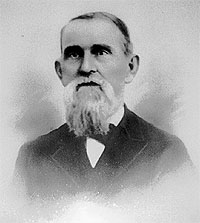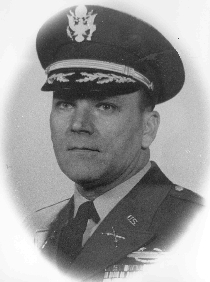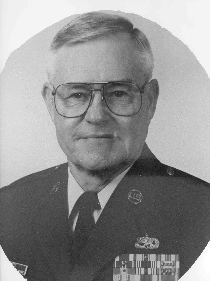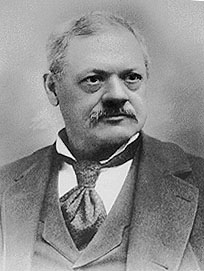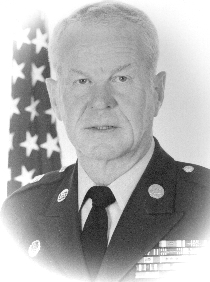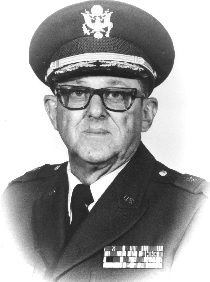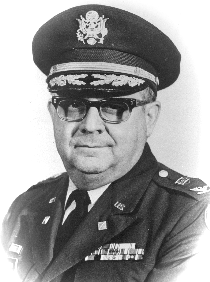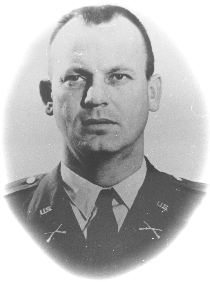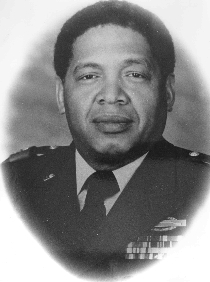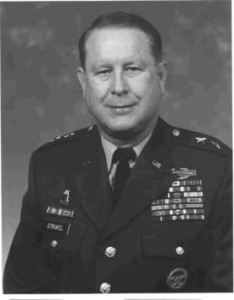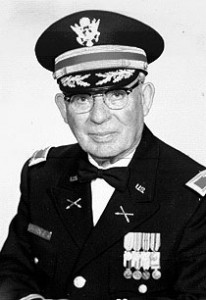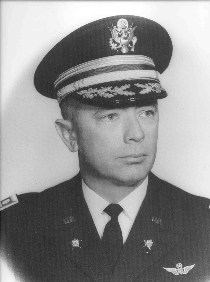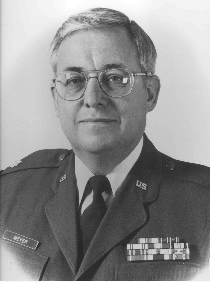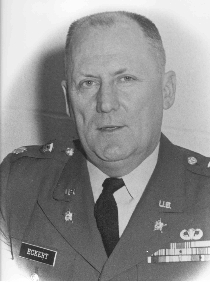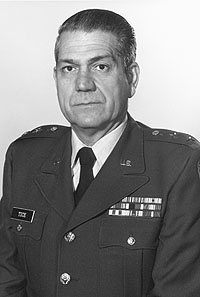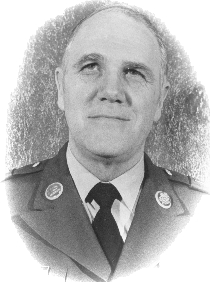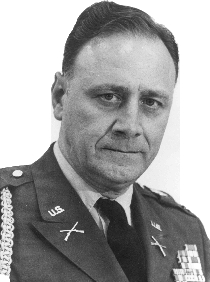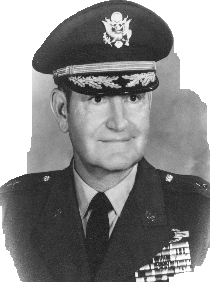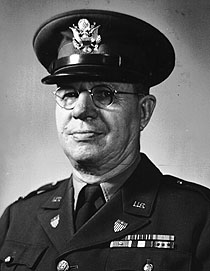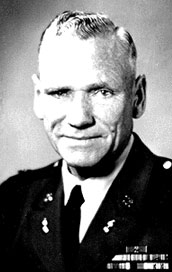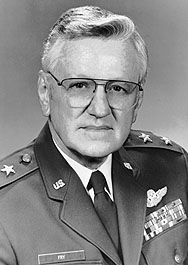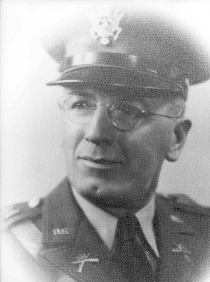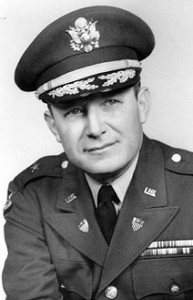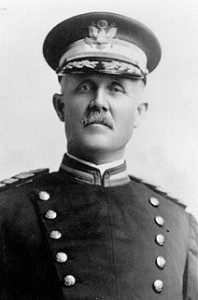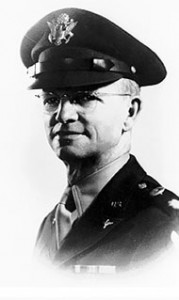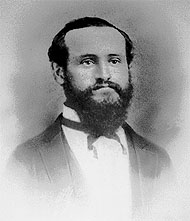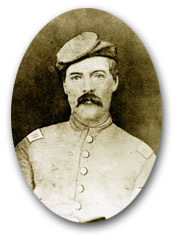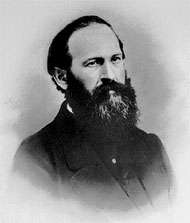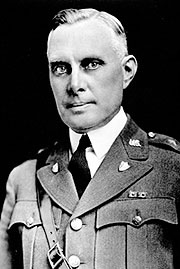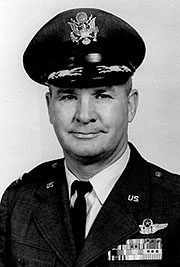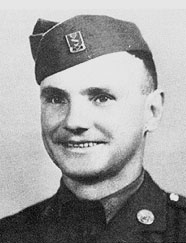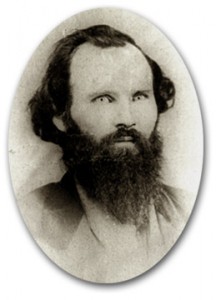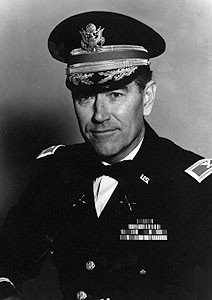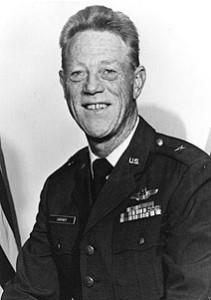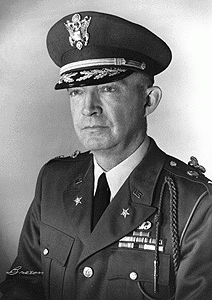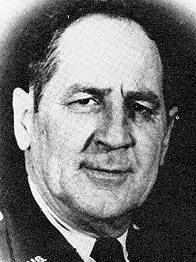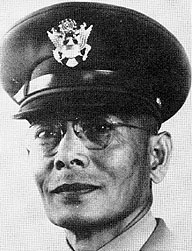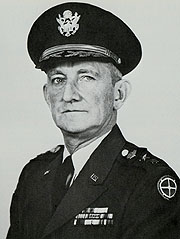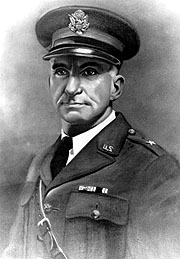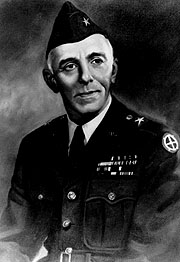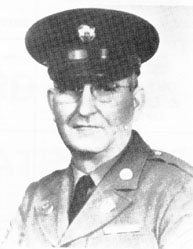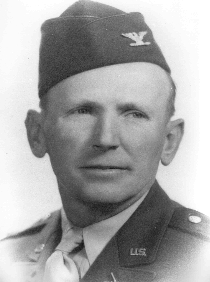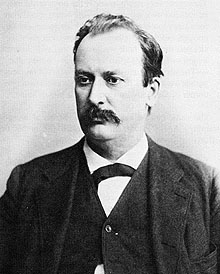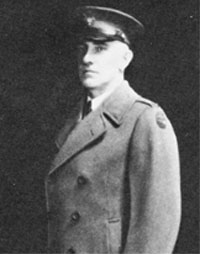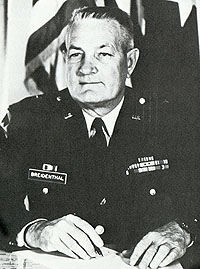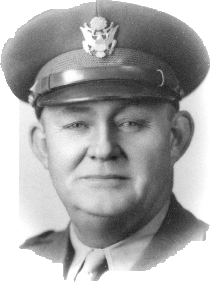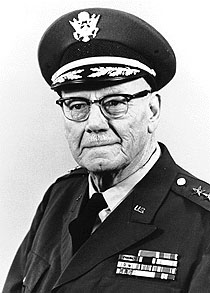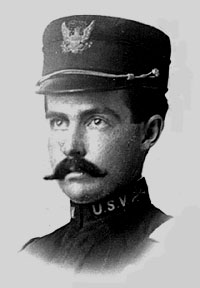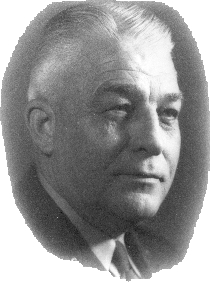During the biennium, troops were ordered into active service to suppress lawlessness and assist civil authorities in upholding the law upon two different occasions. At Independence, Kan., on December 17, 1920, after a clash between whites and blacks in which several persons were killed or injured, the sheriff of Montgomery county called for military aid.
Nine officers and 104 enlisted men of the Fourth Infantry were dispatched to Independence, arriving there at 3:45 a.m., December 18, 1920. The situation was quickly in hand, and all troops returned to their home stations the following day. The near race riot which caused troops to be called to Independence resulted from the murder of an Independence citizen by a Negro, full details of which, together with detailed report of the commander of troops, is published herein.
All of the active service referred to herein was performed in the midwinter season under severe weather condition’s, and the thorough performance of every duty without delay on the part of the troops is deserving of the highest commendation. Further and detailed reports from the officers commanding troops within the area of disturbance are published herein.
INDEPENDENCE, KAN., RACE RIOT.
The seriousness of the Independence, Kan., riot situation was first brought to the attention of this office by telephone reports from the deputy sheriff of Montgomery county received at the governor’s office. The officer making the report was instructed to make full investigation and to wire this office for assistance in the event that the situation got beyond control of the local authorities.
The following wire was received from the deputy sheriff at 1:15 p.m., December 17, 1920, and action taken as outlined in detailed reports following:
INDEPENDENCE, KAN, December 17, 1920.
Henry J. Allen, Governor, Topeka, Kan.:
Sheriff being absent from jurisdiction, the deputy sheriff earnestly requests governor to send militia to Independence to quell race riot and protect prisoner in custody. Send immediately. Sheriff feels that he is unable to handle situation.
HOMER ADAM,
Deputy Sheriff.
HEADQUARTERS KANSAS NATIONAL GUARD,
THE ADJUTANT GENERAL’S OFFICE,
TOPEKA, December 17, 1920.
GENERAL ORDERS, NO. 31.
1. The sheriff of Montgomery county, Kansas, having called upon the governor for military assistance to suppress a riot at Independence, Kan., the commanding officer of machine-gun company, Fourth Infantry, and of company B, Fourth Infantry, will assemble their respective companies and proceed to Independence, Kan., at the earliest possible time.
2. Maj. Joseph H. Dunkel, Fourth Infantry, will proceed from Clay Center, Kan., to Independence, Kan., assuming command of troops assigned to active duty at that point. Major Dunkel will report in person to the sheriff of Montgomery county, and will cooperate with him, rendering all assistance possible to preserve the peace and execute the laws of the state.
3. Capt. Earle T. Patterson, unassigned, will proceed from Yates Center, Kan., to Independence, Kan., for the purpose of investigating conditions at that point. After investigation, Captain Patterson will render telephone report to this office.
4. Capt. Donald D. Wilson, quartermaster corps, will proceed from Topeka, Kan., to Independence, Kan., reporting on arrival to Maj. Joseph H. Dunkel, Fourth Infantry.
5. Capt. James G. Stewart, medical corps, First Cavalry. will proceed from Topeka, Kan., to Independence, Kan., reporting on arrival to Maj. Joseph H. Dunkel, Fourth Infantry.
6. First Lieut. Henry E. Haskins, medical corps, Fourth Infantry, and three (3) enlisted men sanitary unit, Fourth Infantry, will proceed from Kingman, Kan., to Independence, Kan., reporting on arrival to Maj. Joseph H. Dunkel, Fourth Infantry.
7. Three (3) days rations will be purchased and taken with troops.
8. The chief, quartermaster corps, will arrange for the necessary transportation for movement of troops.
By command of the Governor:
MILTON R. McLEAN,
Acting Adjutant General, for the Chief of Staff.
DECEMBER 20, 1920.
From: Major Joseph H. Dunkel, Fourth Infantry, Kansas National Guard.
To: The Adjutant General, State of Kansas.
Subject: Report on Active Duty at Independence, Kan, Dec. 17, 18, 19, 1920.
1. Pursuant to instructions received by long-distance telephone from the acting adjutant general at 12:30 p. m., December 17, 1920, the writer, who was on duty at Clay Center, Kan., proceeded to Independence, Kan., via Topeka and Lawrence, assuming command of troops as provided by General Orders No. 31, A. G. O., c.s., a copy of which is attached hereto and made a part of this report.
2. Upon arrival at Topeka I was handed written copies of General Orders No. 31, A. G. O., c.s., and received instructions from the acting adjutant general in person, that a special train to transport company B, and machine-gun company, Fourth Infantry, would be at Lawrence upon my arrival thereat; that I would assume command of the train and all troops thereon, proceed to Independence, Kan., with the least possible delay, and report to the sheriff of Montgomery county, Kansas, for duty.
3. Pursuant to telegraphic ordes from the acting adjutant general, company B, Fourth Infantry, and machine-gun company, Fourth Infantry, were mobilized at Lawrence, Kan., and left that station under my command on a special Santa Fe train at 11:45 p. M., December 17, 1920, arriving at Independence, Kan. at 3:45 a. m., December 18 following. The trip from Lawrence to Independence was made without incident; the train was in excellent condition and sufficient to accomodate all without crowding. The train stopped fifteen minutes at Chanute to change crews, and was halted five minutes at Cherryvale by the train commander, who communicated by telephone with railroad authorities at Independence to determine whether or not the tactical situation required the detraining of troops outside the city limits. The information received indicated no danger in detraining at the passenger station in Independence, and the train proceeded thereto, the troops detrained, and the commanding officer reported to the sheriff of Montgomery county, Kansas, through a representative from his office, the sheriff being out of the state on official business.
4. GENERAL SITUATION. A grocer, R. R. Wharton, had been murdered in his store early Thursday morning, presumably by a Negro, who was caught in the act of robbing the cash register within the store, by a passing citizen, who immediately gave the alarm and notified local police authorities. Several suspects were arrested, and one by the name of Noble Green was identified as the man seen within the store of the murdered man. Soon after the identity had been established crowds began to gather within the vicinity of the jail, and threats of violence were heard. Armed Negroes, who claimed they came to offer their services to the police officials in the protection of the prisoner from mob violence, were present, as were armed whites who had been engaged in the hunt for the murderer, or were attracted by the threats of violence. The police officials, with the aid of the man who identified the prisoner, attempted to pacify the crowd and induce them to disperse. During the parley a shot was fired by parties unknown, and immediately a fusillade of shots were exchanged between the whites and blacks, resulting in the killing of one Negro, two whites, and the serious wounding of three other whites, whose recovery is doubtful. After the first exchange of shots the Negroes retired to cover, with the whites gathering force, and it looked like a race war was on. The local peace officers quickly realized that they were unable to successfidly cope with the situation, and thereupon called for volunteers to assist in restoring order and upholding the law. Many members of the American Legion from Independence and near-by towns responded to the call for assistance, and a force approximating 450 men was organized and controlled the situation, under Legion officers, until the arrival of National Guard troops.
5. SPECIAL SITUATION. To relieve the volunteers and American Legion from responsibility in the preservation of law and order in Independence, and to render such assistance to the sheriff of Montgomery county in the protection of life and property as he might request and as might be necessary in upholding the law and restoring order. Accordingly, as the troops had been without food the entire night, and it appeared unlikely that they would be given an early opportunity to breakfast after taking control of the situation, it was decided to give the men breakfast before relieving the volunteers, who were then on duty and had matters well in hand under direction of officers from the American Legion.
6. The formal relief of volunteers and the American Legion was completed at 5:45 a. m. December 18, 1920, all civilian guards and patrols except the regular peace officers were called in and dismissed by their officers, and the troops took full charge of the situation, under the direction of the acting sheriff of Montgomery county, at that hour. Necessary tactical distribution of troops was made before the relief of volunteers was announced, and at 6 a. m. December 18, 1920, the acting sheriff informed me he desired to remove the prisoner to some other location. At 6:08 a. m. the prisoner, in the custody of the acting sheriff of Montgomery county and under a strong guard, was placed in an automobile, taken from the city, and the most potent factor conducive to trouble was removed. The troops were billeted within the city hall and the county courthouse near by. A strong guard was maintained, preventing the entrance within the city block on which these two buildings were located, of any unauthorized persons. By 10 a. m. it was apparent that both sides were satisfied with the turn events had taken, and as no indications of danger were in evidence, the guard was reduced to the minimum consistent with safety. The commanding officer requested the local officials to direct all unauthorized persons to at once cease carrying firearms, under penalty of arrest, and by noon the city was once more quiet and peaceful appearing.
At 5 p. m. the acting sheriff returned to the city, and after a conference with the mayor and chief of police thereof, authorized the withdrawal of troops at noon, December 19, 1920. After the conference I immediately communicated with the adjutant general’s office by long-distance telephone and requested orders to withdraw the troops at noon, December 19, 1920.
7. Telegraphic orders were received froin the acting adjutant general at 8 p. m. December 19, 1920, directing the withdrawal of troops, with the consent of the acting sheriff of Montgomery county, Kansas, at noon, December 19, 1920. Patrols covered the city throughout the night of December 18, but no indications of trouble were apparent. A special train was provided by the Santa Fe Railway Company, and organization baggage and equipment was loaded during the forenoon. Promptly at 12 noon, December 19, 1920, the troops marched from their billets, entrained, and left for their home station at 12:15 p. m. by special train indicated, arriving at Lawrence, Kan., 4:05 p. m., same date. The return trip was without incident. Train equipment was sufficient and in excellent condition. Company commanders were directed to make such details as were necessary to care for organization property, and dismiss their companies.
8. Attached officers from the medical corps and quartermaster corps efficiently performed all duties assigned to them during this tour of duty.
9. Special mention is made of Commissioner Fowler, Mayor Wadman and Mr. Oakes, of the city of Independence, and the ladies of the local chapter of Red Cross, for courtesies extended to the troops on duty, and to the acting sheriff of Montgomery county and the chief of police of Independence for
their hearty cooperation with the troops in the duty performed.
JOSEPH H. DUNKEL.
OFFICE OF THE SHERIFF OF MONTGOMERY COUNTY.
INDEPENDENCE, KAN., December 18, 1920.
Major Joseph H. Dunkle,
Fourth Kansas Infantry, National Guard:
The emergency requiring the assistance of troops necessary to preserve the peace and execute the laws of the state at Independence, Kan., having ceased, you are authorized to withdraw all troops on duty at Independence, Kan., at noon, December 19, 1920.
(Signed) HOMER ADAM,
Deputy Sheriff, Montgomery County,
Acting Sheriff.
(Source: Twenty-Third Biennial Report of the Adjutant General of the State of Kansas, 1921-1922. Topeka, Kansas: B. P. Walker, State Printer (1923) pp. 26-29. Transcribed by Bryce Benedict.)

 Maj Gen David Weishaar
Maj Gen David Weishaar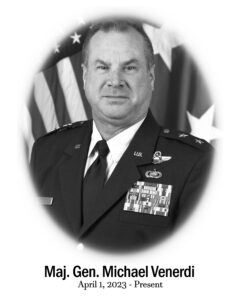
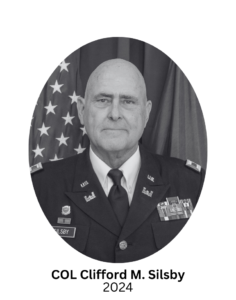
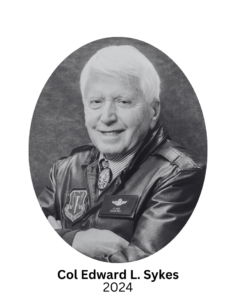
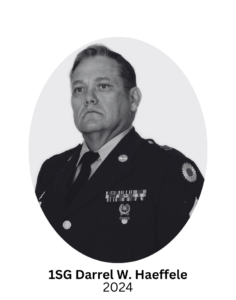 First Sergeant Darrel W. Haeffele was born on September 25, 1940, in Falls City, Nebraska. He graduated from Atchison High School in 1958. He attended Concordia College in Seward, NE for two years before starting a career in retail.
First Sergeant Darrel W. Haeffele was born on September 25, 1940, in Falls City, Nebraska. He graduated from Atchison High School in 1958. He attended Concordia College in Seward, NE for two years before starting a career in retail.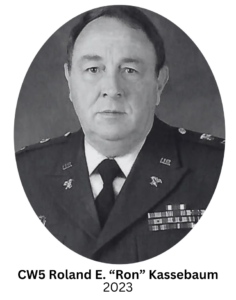 CW5 Roland E. “Ron” Kassebaum was born on February 21, 1946 in Deshler, Nebraska. He graduated from Hebron High School, Hebron, Nebraska in 1964. He attended Fairbury Junior College, Fairbury, Nebraska and the University of Nebraska, Lincoln, Nebraska, and received a Bachelor of Science Degree from the University of the State of New York in 1991. He later attended Liberty University, Lynchberg, Virginia, for courses in accounting and Allen County Community College, Iola, Kansas, for a course in Business Law.
CW5 Roland E. “Ron” Kassebaum was born on February 21, 1946 in Deshler, Nebraska. He graduated from Hebron High School, Hebron, Nebraska in 1964. He attended Fairbury Junior College, Fairbury, Nebraska and the University of Nebraska, Lincoln, Nebraska, and received a Bachelor of Science Degree from the University of the State of New York in 1991. He later attended Liberty University, Lynchberg, Virginia, for courses in accounting and Allen County Community College, Iola, Kansas, for a course in Business Law.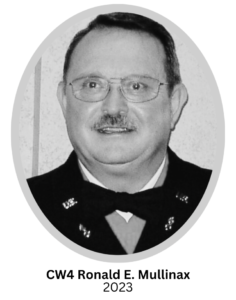 Chief Warrant Officer Four Ronald E. Mullinax was born on August 25, 1946, in Norton, Kansas to Earl and Mary Posson. He was adopted by John and Ada Mullinax. He grew up in Lenora, Kansas, graduating from Lenora Rural High School in 1965. After completing a Denver Automotive Institute training program, Ron worked at Look Body Shop in Norton until 1968.
Chief Warrant Officer Four Ronald E. Mullinax was born on August 25, 1946, in Norton, Kansas to Earl and Mary Posson. He was adopted by John and Ada Mullinax. He grew up in Lenora, Kansas, graduating from Lenora Rural High School in 1965. After completing a Denver Automotive Institute training program, Ron worked at Look Body Shop in Norton until 1968.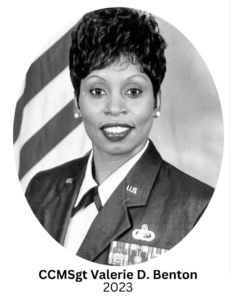 CCMSgt Valerie D. Benton was born on Dec. 10, 1959 in Racine, Wisconsin, where she spent her childhood. She graduated from Washington Park High School in 1978. Soon after graduation she enlisted in the U. S. Air Force and headed to Basic Training at Lackland AFB, Texas in December of 1978. After completion of Basic training, she attended Technical Training at Lowry AFB, Colorado, and graduated as a Food Service Specialist.
CCMSgt Valerie D. Benton was born on Dec. 10, 1959 in Racine, Wisconsin, where she spent her childhood. She graduated from Washington Park High School in 1978. Soon after graduation she enlisted in the U. S. Air Force and headed to Basic Training at Lackland AFB, Texas in December of 1978. After completion of Basic training, she attended Technical Training at Lowry AFB, Colorado, and graduated as a Food Service Specialist.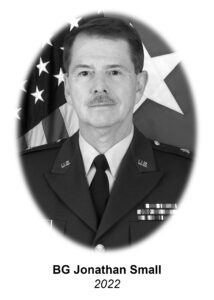 Brigadier General Jonathan P. Small served as The Adjutant General of Kansas from November 1, 2003 to January 4, 2004, culminating a 35-year military career as a distinguished attorney, community leader, citizen-soldier, and military leader. He served as Assistant Adjutant General-Army from 1999 to 2003, and as Commander of the Land Component for the Joint Force Headquarters-Kansas.
Brigadier General Jonathan P. Small served as The Adjutant General of Kansas from November 1, 2003 to January 4, 2004, culminating a 35-year military career as a distinguished attorney, community leader, citizen-soldier, and military leader. He served as Assistant Adjutant General-Army from 1999 to 2003, and as Commander of the Land Component for the Joint Force Headquarters-Kansas.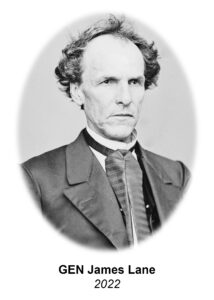 General James H. Lane was a militia leader during the Bleeding Kansas period, the commander of the Kansas “Jayhawker” Brigade during the Civil War, and was one of the first United States Senators from Kansas.
General James H. Lane was a militia leader during the Bleeding Kansas period, the commander of the Kansas “Jayhawker” Brigade during the Civil War, and was one of the first United States Senators from Kansas.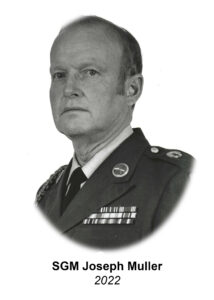 Sergeant Major Joseph T. “Jody” Muller was selected for the Kansas National Guard Hall of Fame for his exceptional service as a citizen soldier in the Kansas National Guard for over 41 years.
Sergeant Major Joseph T. “Jody” Muller was selected for the Kansas National Guard Hall of Fame for his exceptional service as a citizen soldier in the Kansas National Guard for over 41 years.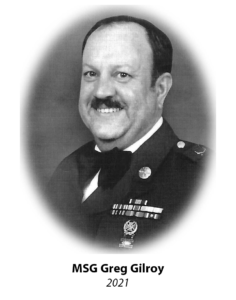 Master Sergeant Greg Gilroy was born on July 25, 1947 at Ottawa, Kansas. He was a lifelong resident of Ottawa, graduating from Ottawa High School in 1965. He then attended Emporia State University during the 1965-66 school year.
Master Sergeant Greg Gilroy was born on July 25, 1947 at Ottawa, Kansas. He was a lifelong resident of Ottawa, graduating from Ottawa High School in 1965. He then attended Emporia State University during the 1965-66 school year.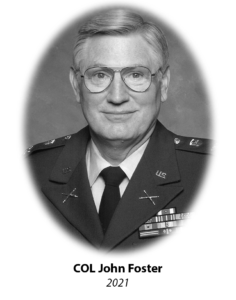
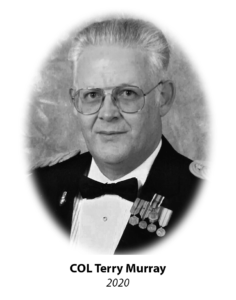
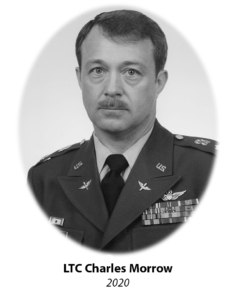


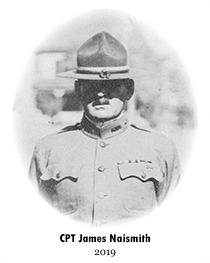
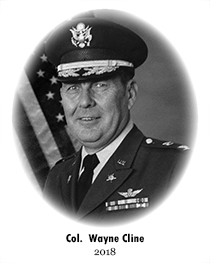
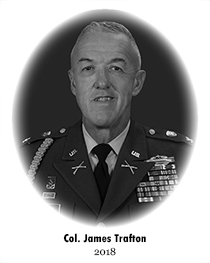
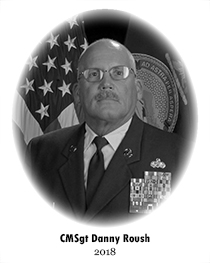
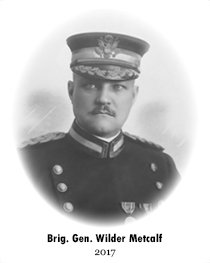
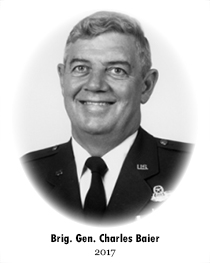
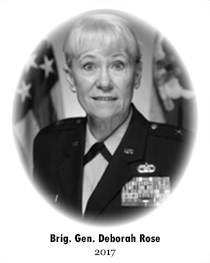 Brigadier General Deborah Rose entered military service with a direct commission into the United States Air Force Nurse Corps in March 1983, assigned to the 184th Tactical Fighter Group. She transferred to the 190th Clinic in December 1985. In October 1990, she deployed to Jeddah, Saudi Arabia, where she served in an Air Transportable Hospital during Desert Shield. In February 1991, she was activated and deployed to Offutt AFB, Nebraska, assigned to the hospital.
Brigadier General Deborah Rose entered military service with a direct commission into the United States Air Force Nurse Corps in March 1983, assigned to the 184th Tactical Fighter Group. She transferred to the 190th Clinic in December 1985. In October 1990, she deployed to Jeddah, Saudi Arabia, where she served in an Air Transportable Hospital during Desert Shield. In February 1991, she was activated and deployed to Offutt AFB, Nebraska, assigned to the hospital.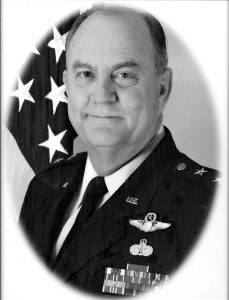
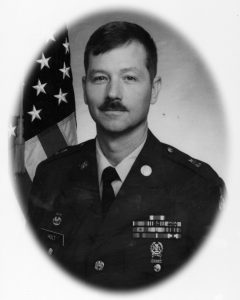 Sergeant Major Lynn E. Holt built his distinguished Kansas Army National Guard career developing strength, retaining Soldiers and insuring Soldiers received proper training. He served from the Detachment through State level. He is known for his ability to recognize Soldier needs at all levels. The same care he felt for Soldiers carried over into his community activities. SGM Holt’s passion for people and their needs exemplifies his true character. He devoted his entire adult life to the betterment of our nation, our state and the Kansas National Guard.
Sergeant Major Lynn E. Holt built his distinguished Kansas Army National Guard career developing strength, retaining Soldiers and insuring Soldiers received proper training. He served from the Detachment through State level. He is known for his ability to recognize Soldier needs at all levels. The same care he felt for Soldiers carried over into his community activities. SGM Holt’s passion for people and their needs exemplifies his true character. He devoted his entire adult life to the betterment of our nation, our state and the Kansas National Guard.